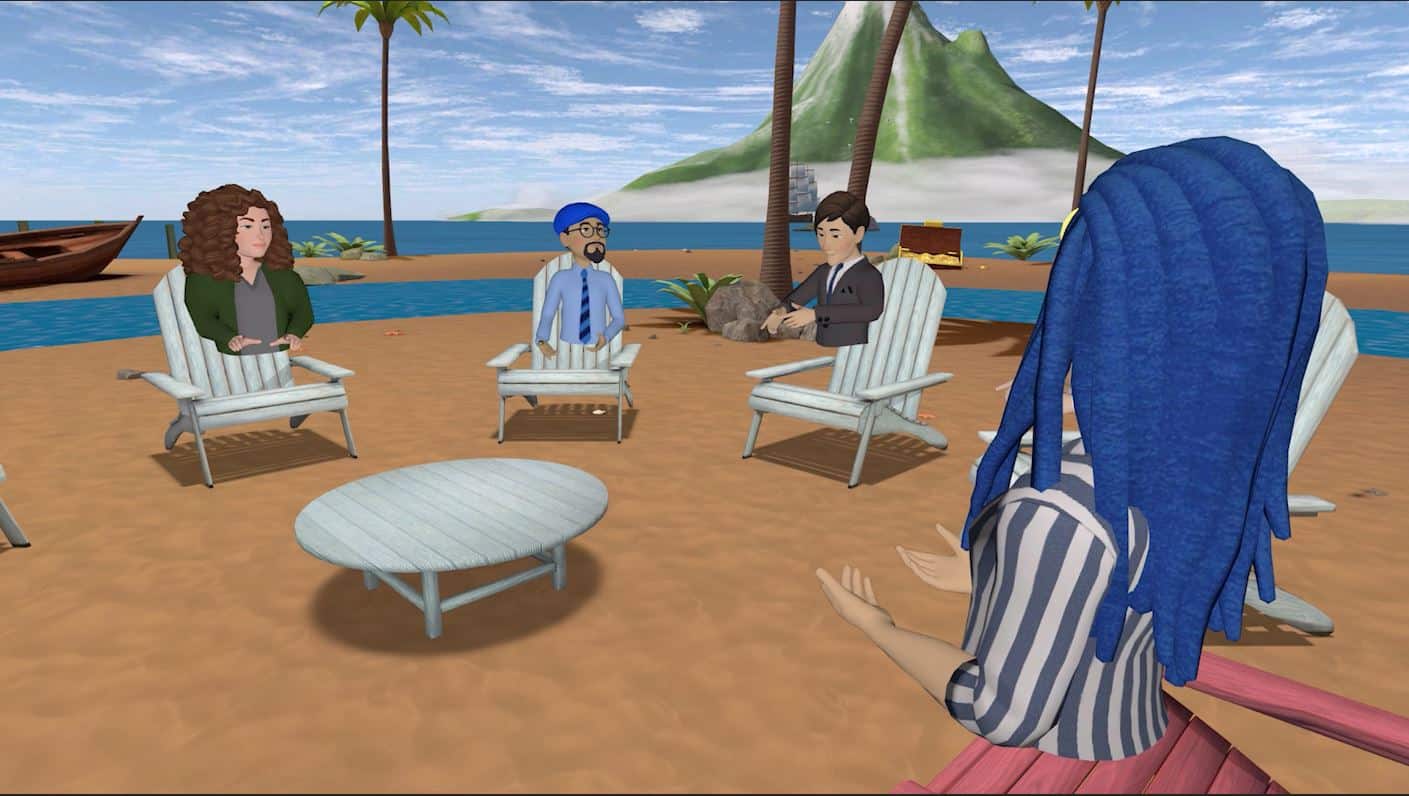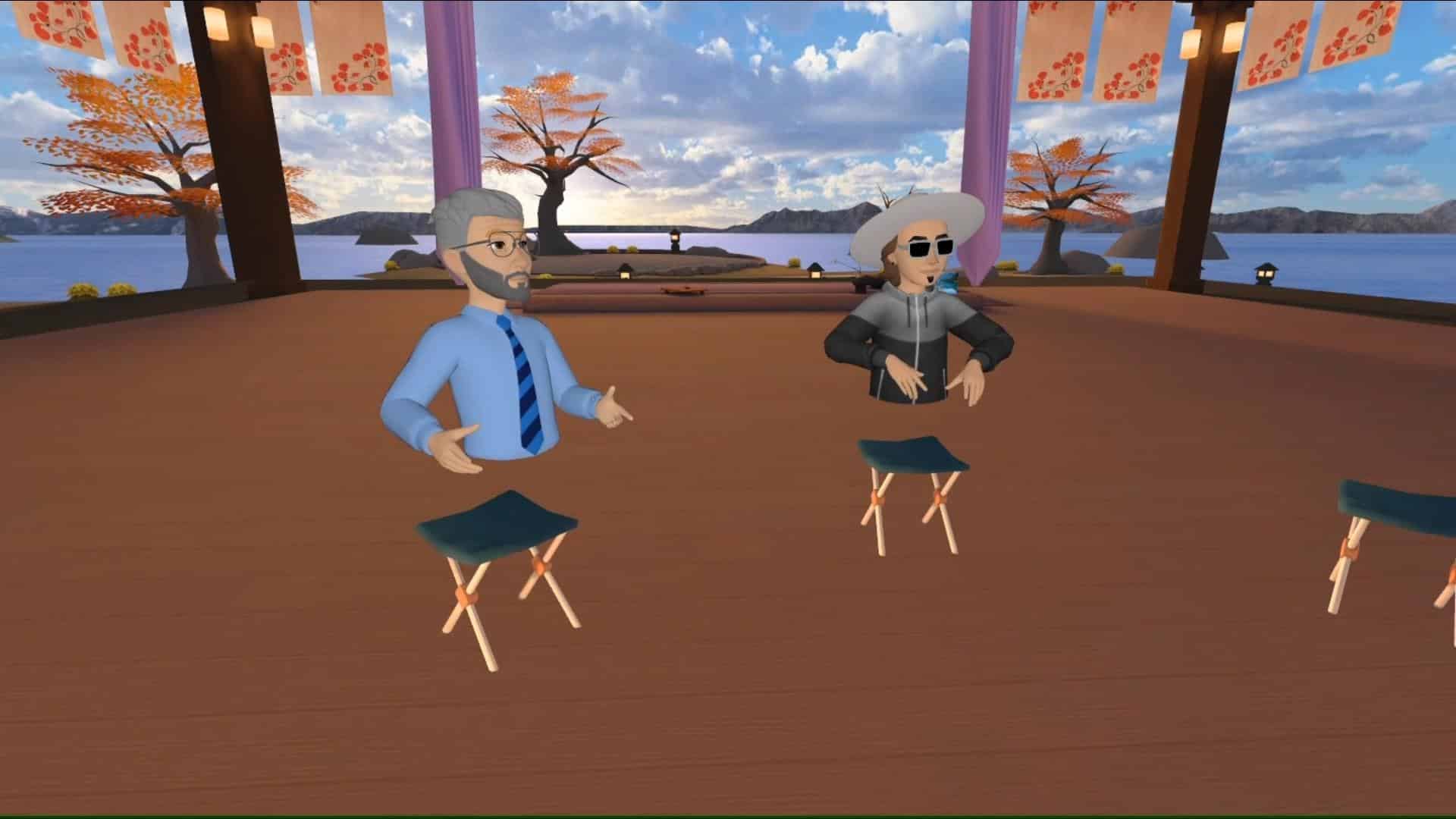Virtual Reality (VR) provides a tangible feeling of group presence through lifelike avatars that can gesture, direct their gaze, and manipulate and pass objects. Distraction free environments focus attention and increase engagement and particpation.


VR breaks down certain barriers surrounding traditional therapy and support. By masking the identity of the participant with a virtual avatar, issues of social stigma and discomfort in public settings are lessened, resulting in more open and meaningful interactions.
VR removes the need to travel to a physical location, eliminating expenses, logistics, and time. Additionally, Foretell Reality works with our partners to ensure therapeutic environments are HIPAA compliant.

Foretell Reality is working with Yale School of Medicine’s Pediatric Oncology Department on a leading study of the efficacy of support groups in VR versus in person.
The has found an effective and convenient solution for adolescent cancer patients to participate in moderated support group sessions without the health risk and inconvenience of traveling to and from the hospital or the social anxiety that can occur in group therapeutic settings.